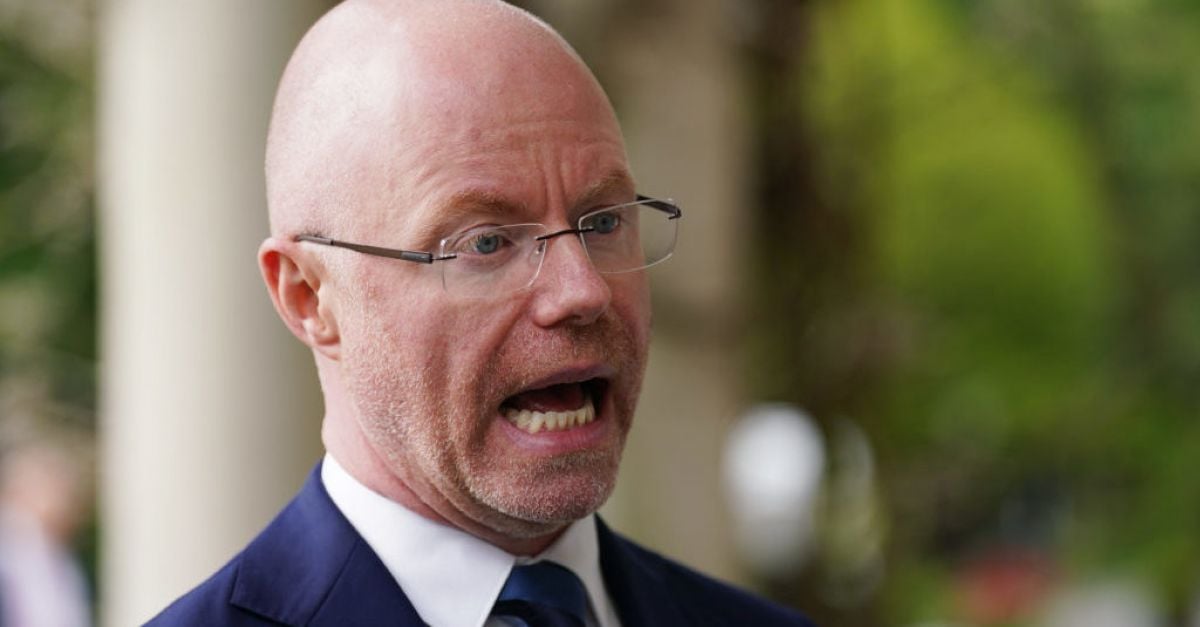Fitness
Misinformation around vaccines damaged efforts to combat spread of measles | BreakingNews.ie

Ireland’s efforts to combat the spread of measles were compromised by rampant misinformation that had spread around a link between the vaccine and autism, according to a submission for Health Minister Stephen Donnelly.
In documents urging a “catch-up” programme for the MMR vaccine, officials said that nearly one in five males in the 18-to-19-year-old age bracket were “non-immune”.
The submission said the huge gap in immunity against measles was likely down to “misinformation regarding the MMR vaccine which falsely implicated it with a risk of autism”.
The document, prepared by Department of Health officials in February, said: “As autism is more often diagnosed in young male children, it is likely that a cohort of now young men were not vaccinated due to parental decisions informed by this erroneous science which has since been discredited.”
Mr Donnelly was also told it was not possible to accurately assess the number of unvaccinated people in Ireland because there was no data available for certain population groups.
The submission said that the country had many healthcare workers from overseas “and their measles immunity status may be unclear.”
The minister was informed as well about difficulties in “congregate settings” especially where people had travelled to seek asylum and safety in Ireland.
“The HSE has advised that displaced people entering [Europe] from other countries, including Ukraine, seeking international protection may be vulnerable to developing infectious diseases,” officials said in the document.
In an executive summary, Mr Donnelly was informed that national uptake for the MMR vaccine was below 90 percent and that the risk of transmission of the disease was “very high”.
Officials added that there were “significant geographic variations” in immunisation rates from a low of 77 percent in Louth to a high of 94 percent in Dublin Southwest.
It said the priority for an MMR catch-up programme should be with children, young people aged up to 24, and healthcare workers.
Also prioritised would be “underserved populations” such as Travellers, the Roma community, the homeless, refugees, other vulnerable migrants, and prisoners.
The submission warned too of risks for healthcare workers, who would likely be exposed to measles through work and could end up infected.
It said: “Exposed staff must be excluded from work for a prolonged period if they are non-immune to measles and are in close contact with a case.
“This can have a serious effect on staffing levels in healthcare settings.”
Mr Donnelly was advised as well that counties with low uptake of the MMR vaccine – for example Louth and Meath – should be “explicitly targeted” in any campaigns to encourage vaccination.
The submission said there was sufficient storage and distribution capacity and that the HSE was already working with vaccine manufacturers to ensure there were sufficient supplies of the MMR jab.
According to the latest figures from the Health Protection Surveillance Centre, 47 cases of measles have been confirmed in Ireland so far this year with a further 18 suspected cases under investigation.
Of the 47 confirmed cases, 21 were in males, 24 in females, with no gender recorded in two cases.
One case has been confirmed in a child under twelve months, considered the most vulnerable age group, while the largest number of cases, ten, have been confirmed in the 25-34 age group.
Asked about the submission for Minister Donnelly, the Department of Health said they had no further statement to make.










